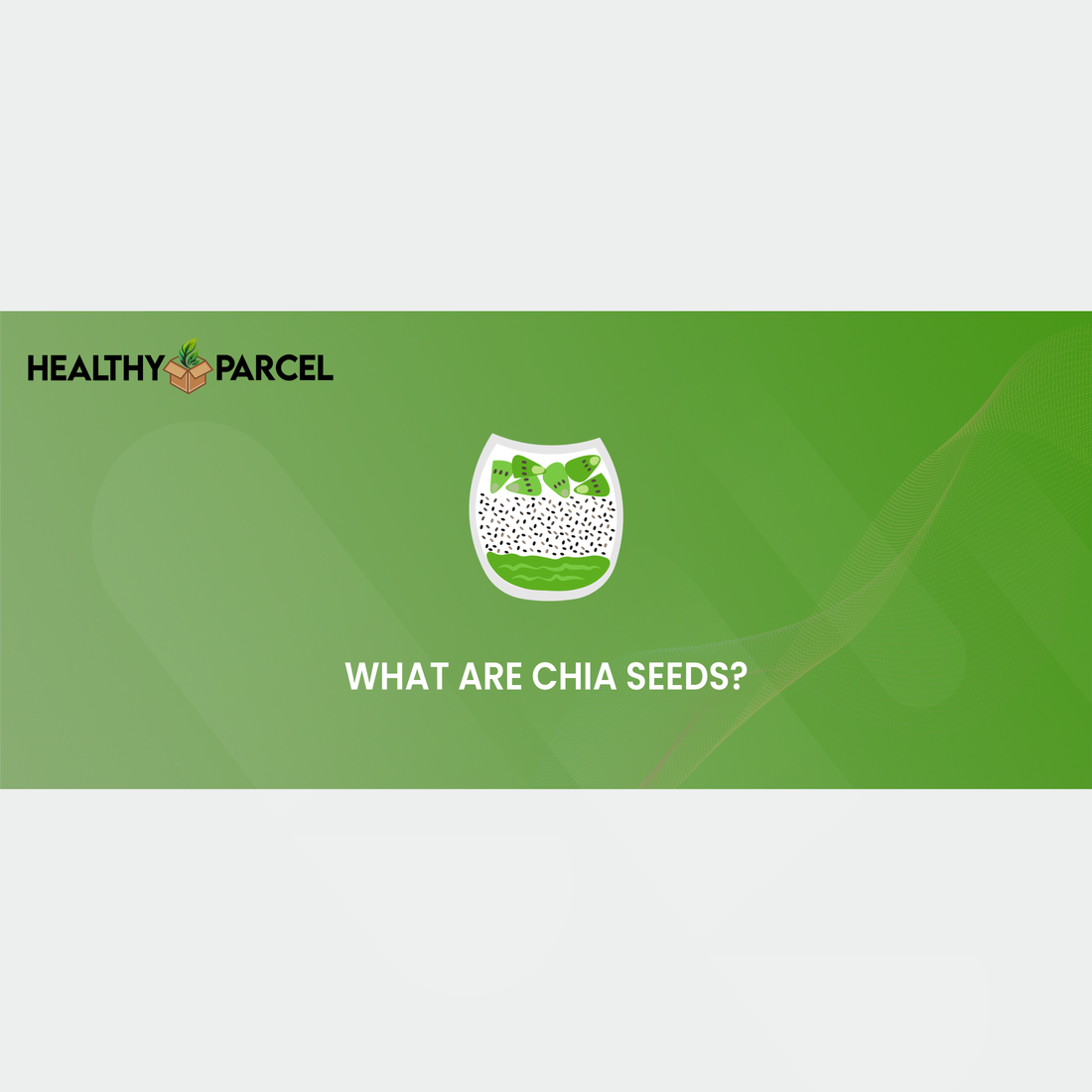Chia seeds are the edible seeds of the flowering plant Salvia hispanica, which is native to Central America. These tiny, nutrient-dense seeds have been a staple in the diets of the Aztec and Mayan civilizations for over 5,000 years. Highly valued for their health benefits and versatility, chia seeds remain a popular superfood in modern diets around the world.
Nutritional Profile and Health Benefits

Chia seeds are packed with essential nutrients and offer numerous health benefits. Let's explore these in more detail:
Rich in Antioxidants:

- Oxidative Stress Reduction: Chia seeds are high in antioxidants, which help combat oxidative stress by neutralizing free radicals. This process can reduce inflammation and lower the risk of chronic diseases such as heart disease, cancer, and neurodegenerative disorders.
- Skin Health: Antioxidants in chia seeds, such as quercetin, can help protect the skin from damage caused by environmental factors, promoting a healthy, youthful appearance.
Heart Health:

- Blood Pressure Regulation: Regular consumption of chia seeds may help lower high blood pressure, a significant risk factor for heart disease.
- Cholesterol Management: Chia seeds can reduce LDL ("bad") cholesterol and triglycerides while increasing HDL ("good") cholesterol. This balance is crucial for maintaining a healthy cardiovascular system.
- Anti-inflammatory Properties: The omega-3 fatty acids in chia seeds, particularly alpha-linolenic acid (ALA), help reduce inflammation. Chronic inflammation is a known risk factor for heart disease and other health issues.
Digestive Health:

- High in Fiber: Chia seeds are an excellent source of dietary fiber, providing both soluble and insoluble fiber. This aids in digestion, promotes regular bowel movements, and helps prevent constipation. The high fiber content also contributes to a feeling of fullness, which can assist with weight management by reducing overall calorie intake.
- Prebiotic Effects: The soluble fiber in chia seeds acts as a prebiotic, feeding the beneficial bacteria in the gut. A healthy gut microbiome is essential for overall health, including immune function and mental well-being.
Blood Sugar Regulation:

- Stabilizing Blood Sugar Levels: Chia seeds can help stabilize blood sugar levels by slowing the absorption of sugar into the bloodstream. This is particularly beneficial for individuals with diabetes or those at risk of developing type 2 diabetes, as it prevents spikes and crashes in blood glucose levels.
- Insulin Sensitivity: The high fiber content in chia seeds may improve insulin sensitivity, helping the body use insulin more efficiently.
High in Omega-3 Fatty Acids:

- Brain Health: Chia seeds are one of the richest plant-based sources of omega-3 fatty acids, especially ALA. These fats are crucial for brain health, supporting cognitive function, and reducing the risk of neurodegenerative diseases.
- Inflammation Reduction: Omega-3 fatty acids help reduce inflammation throughout the body, contributing to heart health, joint health, and overall well-being.
Packed with Essential Nutrients:

- Protein: Chia seeds provide a good amount of plant-based protein, making them an excellent option for vegetarians and vegans. Protein is essential for muscle repair, growth, and overall body function.
- Minerals: Chia seeds are rich in calcium, iron, magnesium, phosphorus, manganese, and zinc. These minerals are vital for maintaining healthy bones, muscles, and various metabolic processes.
- Vitamins: Chia seeds contain various essential vitamins, including B vitamins, which play a key role in energy production and maintaining a healthy nervous system.
Incorporating Chia Seeds into Your Diet
Chia seeds are incredibly versatile and can be easily incorporated into a variety of foods. Here are some ideas:
- Oatmeal and Yogurt: Sprinkle chia seeds over your morning oatmeal or yogurt for an added nutritional boost. They add a pleasant crunch and a dose of fiber, protein, and omega-3s.
- Smoothies: Blend chia seeds into your smoothies for extra fiber and protein. They can help thicken the smoothie and provide a more satisfying texture.
- Puddings: Soak chia seeds in milk or a dairy-free alternative to create a delicious and nutritious pudding. Chia pudding can be flavored with fruits, nuts, and spices for a variety of tastes.
- Baked Goods: Use chia seeds in bread, muffins, and other baked goods for a nutrient-rich twist. They can enhance the nutritional profile without altering the taste significantly.
- Egg Substitute: Mix chia seeds with water to form a gel that can be used as an egg substitute in vegan baking. This gel works well in recipes like pancakes, muffins, and cookies.
- Salads and Dressings: Add chia seeds to salads or mix them into salad dressings for added crunch and nutrition.
- Energy Bars and Snacks: Incorporate chia seeds into homemade energy bars, granola, or snack mixes for a healthy, on-the-go option.
Conclusion
While more research is needed to fully understand all the potential health benefits, chia seeds are undeniably a highly nutritious superfood. Their rich nutrient profile and versatility make them a valuable addition to a balanced diet. Whether you are looking to improve heart health, aid digestion, manage blood sugar levels, or simply boost your intake of essential nutrients, chia seeds can play a beneficial role in your daily nutrition. By incorporating chia seeds into your meals and snacks, you can enjoy their numerous health benefits while adding a delicious and satisfying element to your diet.

